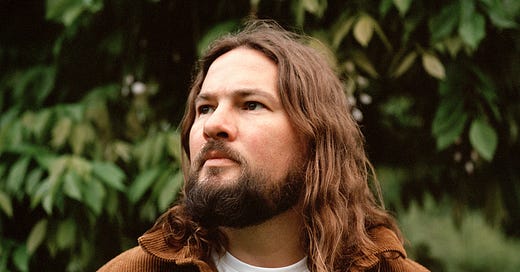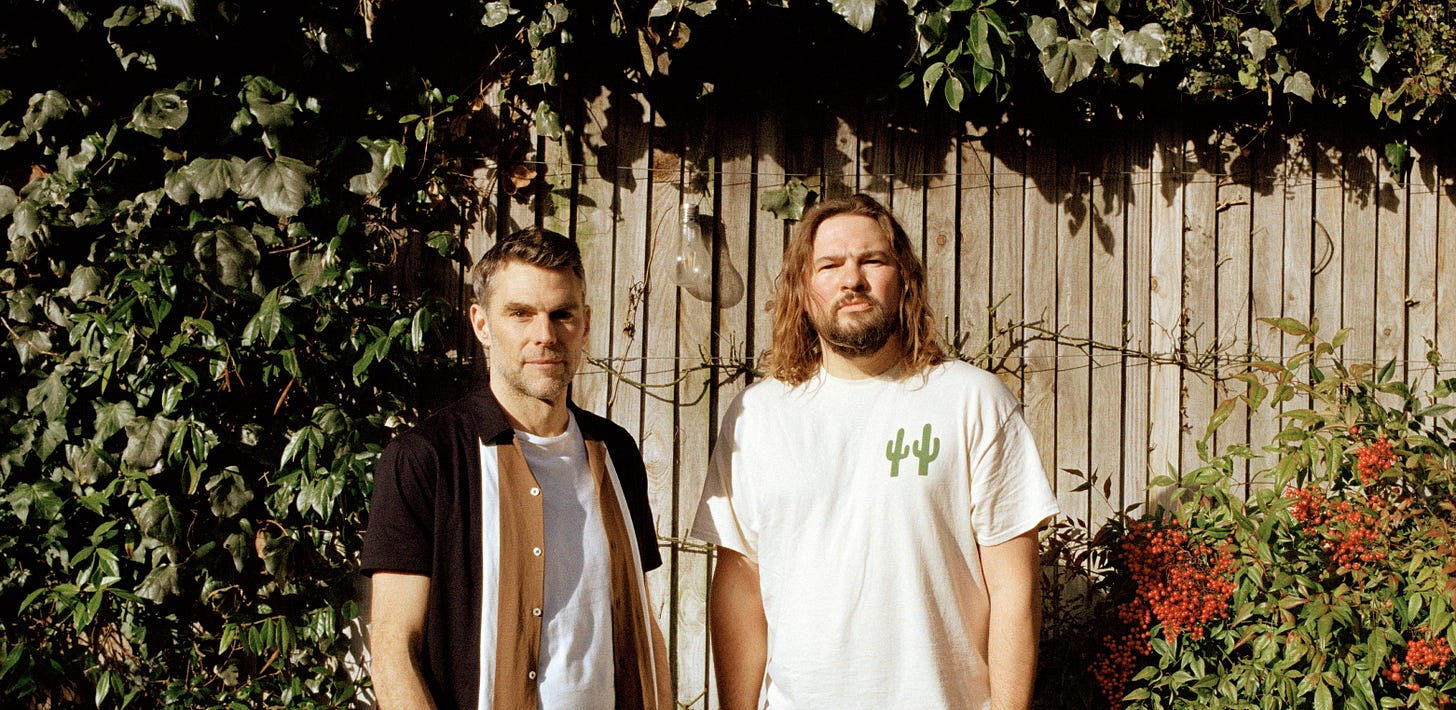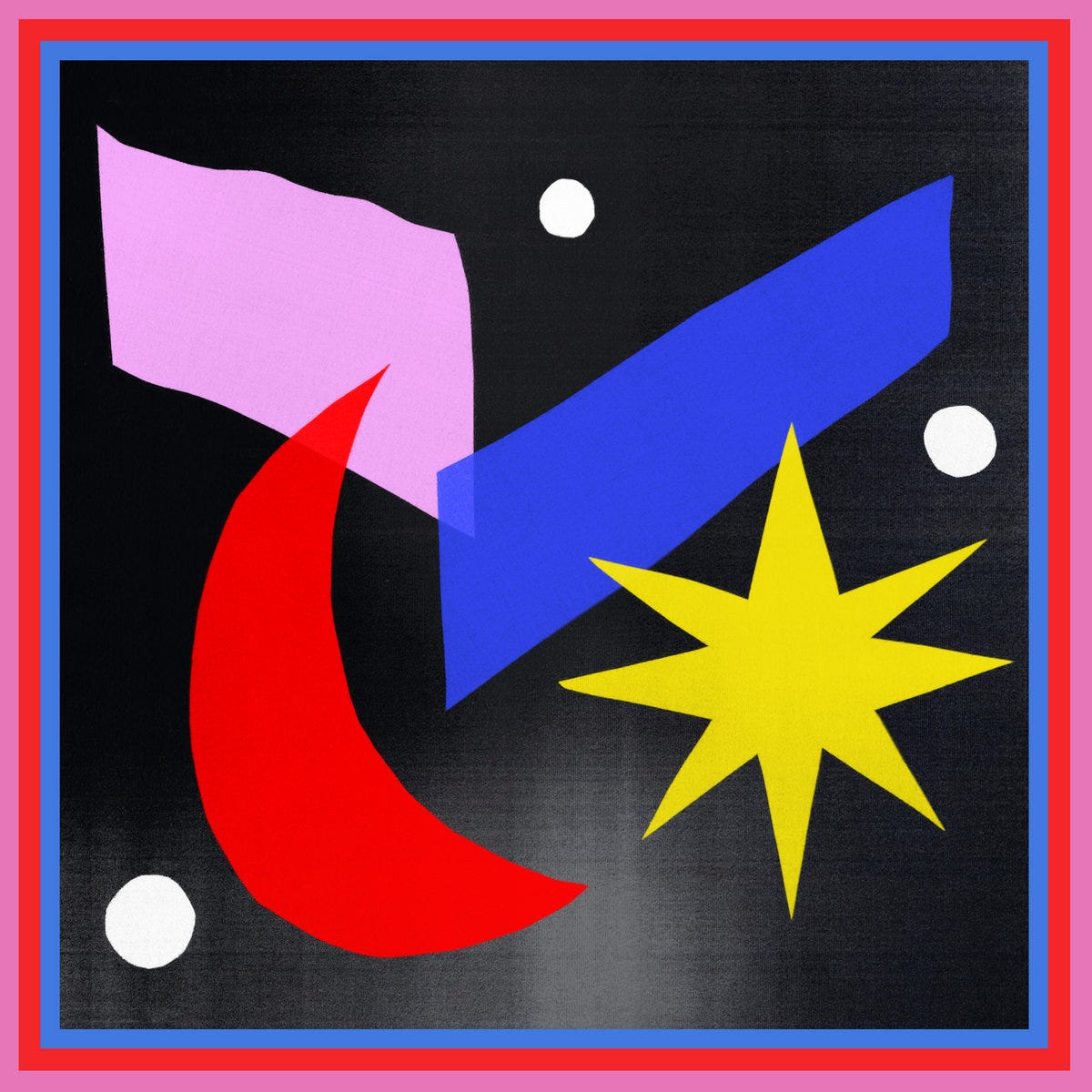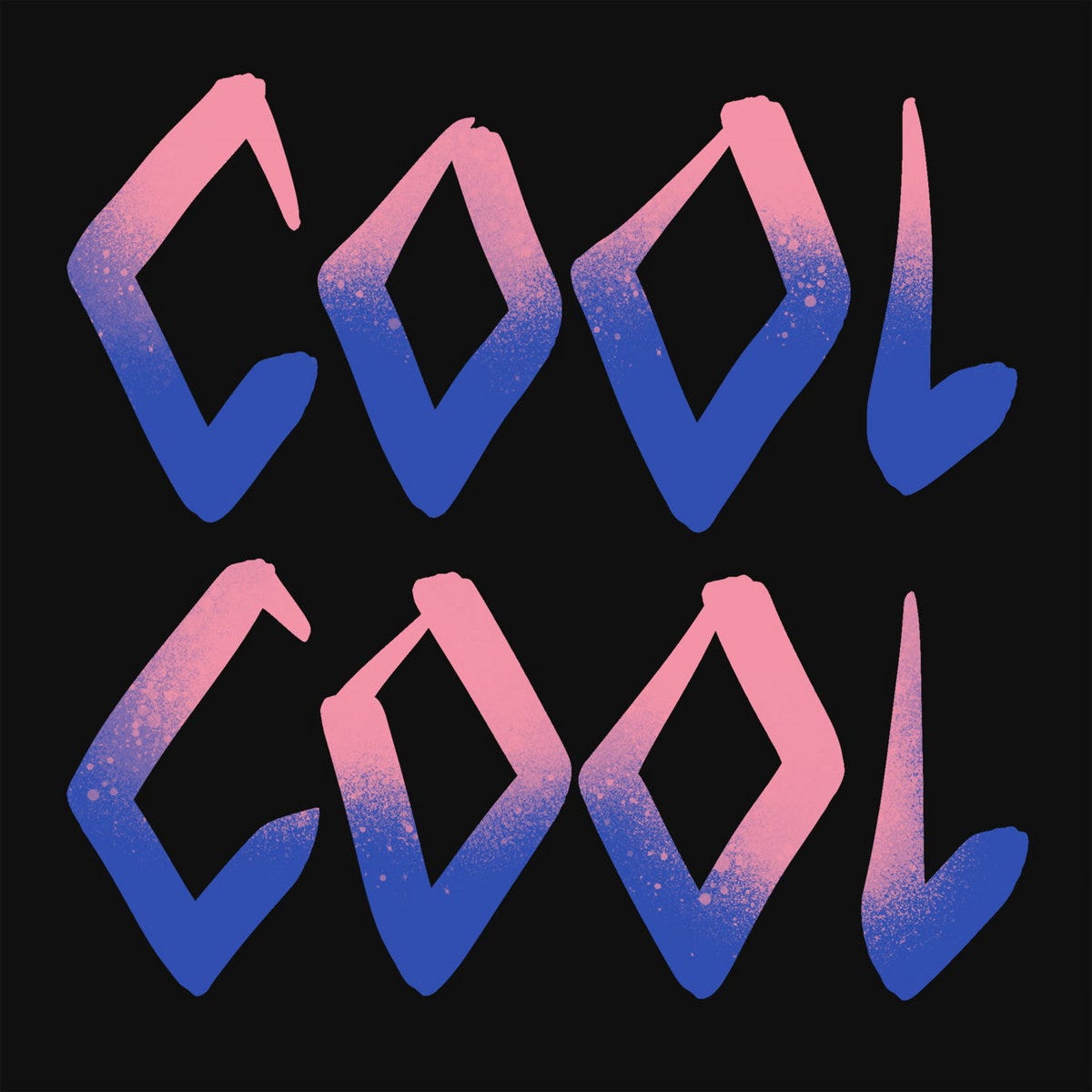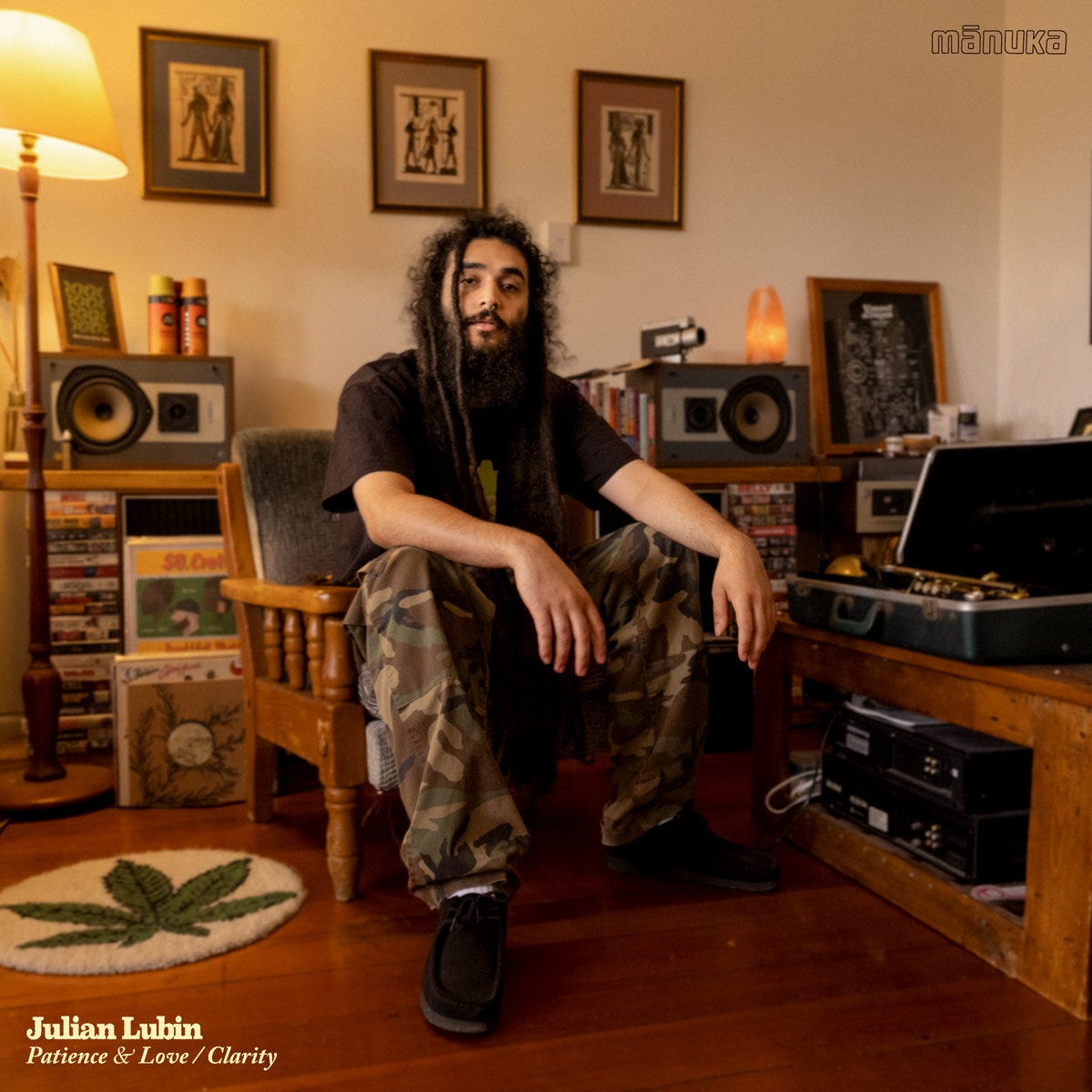The James Alexander Bright Interview
My recent conversation with Hampshire, UK-based singer-songwriter, multi-instrumentalist, and producer + a Mānuka Recordings update.
Selected Works is a weekly (usually) newsletter by the Te Whanganui-a-Tara, Aotearoa (Wellington, New Zealand) based freelance music journalist, broadcaster, copywriter and sometimes DJ Martyn Pepperell, aka Yours Truly. Most weeks, Selected Works consists of a recap of what I’ve been doing lately and some of what I’ve been listening to and reading, paired with film photographs I’ve taken + some bonuses. All of that said, sometimes it takes completely different forms.
Over the last four years, the Hampshire, UK-based singer-songwriter, multi-instrumentalist, and producer James Alexander Bright has released three solo albums, an EP and an album as Bright & Findlay (his collaboration with Groove Armada’s Tom Findlay) and a remix record with the Flying Mojito Bros. Along the way, the big man with a big voice has carved out a playful niche where classic pop sensibilities, the spirit of vintage soul music, psychedelia and shuffling beats dovetail into a joyfully kaleidoscopic soundworld.
During the weekdays, Bright works as an illustrator and graphic designer while juggling music and work with raising a young family with his partner. I got talking with him in 2021 after Bright & Findlay released their debut EP, Slow Dance, through Scottish digger extraordinaire Euan Fryer’s Athens of The North label. Informed by boogie, late 1970s disco-rap and kosmische synth music, Slow Dance reeled me into Bright’s expansive but internal world of music. Since then, I’ve continued to check in on his releases and chatted with him on Instagram, often discussing food as much as we’ve discussed music, art and life itself. Long story short, he’s a good egg.
Growing up in Devon near the coast of South West England, Bright’s childhood was beachy. “It was a regular thing for me to be in the sea as a kid,” he said, speaking with me via Zoom one night after putting his kids to bed. Another regular thing was trips next door to visit a neighbouring family that his mother (a trained singer) was friends with. “The dad was a music teacher, and he had loads of instruments in the back room of the house,” Bright said. Thinking back, he remembered the collection, including a banjo, guitars, a xylophone, and a piano. Rather than treating the instruments as something too special for children to touch, he’d let Bright play with them if he asked.
Decades later, Bright applies the same attitude to the numerous instruments and pieces of musical equipment that sit in clusters around his family’s home. “I want to have instruments around so that when ideas come to me, I can write and record them, but it’s also nice for them to be around for the kids to enjoy,” he explained. “Just before you called, one of my sons was in the bath, and I was playing guitar nearby. My youngest came over and started singing with me, perfectly in tune, about dressing up in armour and chasing dragons.” Bright paused for a moment before continuing with a warm, cheeky grin. “It’s mad, isn’t it?”
At the same time as he began messing around with instruments at the neighbour’s house as a kid, Bright also fell in love with listening to music and honing his skills as an illustrator. Digging deep into his memory banks, he recalled being blown away hearing ‘Brown Eyed Girl’ by the Irish rock journeyman Van Morrison on the family car stereo. “The separation of all the instruments was really intriguing to me,” Bright said. He also remembered hearing his mother’s friends playing The Cure, Adam & The Ants, and The Smiths when they visited them by the seaside. “I guess I was into a lot of new romantic stuff as a kid.”
Later, he discovered the UK soul musician Omar and the melody and harmony-led pop-rock sounds of the New Zealand/Australian band Crowded House and their lead songwriter Neil Finn. “When I was growing up, Crowded House was on the radio all the time,” Bright said. “They were kind of like my Beatles in a sense. Omar always stays in my head as well. I’ve seen him play live more times than I can remember. He never puts a foot wrong. That guy plays bass, piano and sings like a motherfucker. In recent years, however, just for pushing boundaries, a big influence has been Ruban Nielson from Unknown Mortal Orchestra. What a songwriter! I love that he just does whatever he wants. It doesn’t seem like he’s pandering to anyone.”
Hand in hand with music, watching late 1980s cartoon television shows like Teenage Mutant Ninja Turtles gave Bright a gateway into his passion for illustration. “Since I was a kid, music and drawing have always gone together,” he said. “After school, I’d always be sat drawing while watching cartoons and singing the themes.” Eventually, his artistic interests expanded to include design, leading him to study at art school.
Before he got there, however, Bright’s life took a brief detour in his mid-teens, when he spent a stint as a teenage stoner, dropped out of high school, and apprenticed under a French chef for a year. “I enjoy cooking and eating nice food, but that experience made me realise I didn’t want to work night shifts for the rest of my life and never have a day off.”
After heading to art school, Bright formed a band with two friends, who later co-founded the London-based jazz-electronica group Portico Quartet. “I was the main songwriter, singer and guitarist,” he said. “We were very nearly signed to Island Records. “Then, later on, the band turned into something else, and we nearly signed to London Records.” While the glitz and glamour of the music industry had looked enticing from the outside, the closer Bright got to his goals, the more off-putting he found it all. “I just got a bit beat up by the industry and decided I wasn’t going to continue.”
Instead, he decided to finish his art school studies and pursue a career in illustration and design. In this shift, Bright found the discipline he’d learned from hospitality work was invaluable. “When you have to work to deadlines regularly, when you put your mind to doing something, you get it done,” he said. Even today, these qualities keep him in good stead. “I work for quite a well-renowned design studio,” he explained. “We work very quickly, and I design to meet deadlines every day.”
Looking back, Bright realises that he made the right call. “In the end, it all worked out and paid off,” he said. Once some time had passed, he was compelled to begin making music again, but this time on his terms. “I don’t know if it’s a cliche, but I literally just make the music I want to listen to,” he said. “In the scheme of things, there’s no greater plan for it.”
During the 2010s, Bright masterminded various low-key projects like an EP made entirely from his voice and a soundtrack for an imaginary horror movie. “The terminology was coffingaze,” he said. After some encouragement and support from Bandcamp Weekly host Andrew Jervais, Bright released a series of conceptual EPs under the alias Hairy Hands, collaborating with a range of musicians from around the world via the internet along the way. “The beauty of the internet is you can meet like-minded people from the other side of the planet to collaborate with,” he said. “Everyone does their parts at their own pace, so there’s no pressure. I’m actually working on a few new things with people right now.”
In 2017, Hairy Hands brought Bright to the attention of Will Saul from Aus Music, who signed him to the Berlin-based music company !K7 Music for a series of EPs and his first two albums under his own name, Headroom (2020) and Float (2022). “They suggested I use my name rather than Hairy Hands, but for a bit, I was considering calling myself Mutant Jazz Ensemble,” he laughed.
By 2020, Bright had built on his !K7 signing by teaming up with management and a booking agent and was on the verge of heading out on tour when the arrival of COVID-19 completely altered his trajectory. “The pandemic made me try to enjoy making music as a solitude from all the madness that was going on,” he said. “I tend to write a lot anyway. I’m a creative person; my time is either spent with my kids, drawing or making music as much as I possibly can.”
Adapting to the temporary shift in reality, he began writing and recording around the house in stolen moments outside of work and parenting. “Ideas for making music will come into my head throughout the day,” I'll listen to music at the studio if I'm drawing, and then in the evenings, I’ll record when I can around the kids. Like I said, I’ve got a bunch of instruments around the house, so there’s always a guitar or a keyboard within reach.”
Across Headroom, Bright juggled songwriting and singing with instrumentation and production, turning his hand to guitar, synth, bass, drums, percussion, and sampling. In the process, he summoned a distinctive fusion of psychedelic pop and electronic soul that was equally informed by days spent surrounded by green land and fresh air in the English countryside during summer and cold, wet winter nights spent hunkered down writing and recording music.
By the time he arrived at Float in 2022, Bright had had the privilege of singing three songs on Groove Armada’s eighth studio album, Edge of The Horizon and building a strongly collaborative friendship with Tom Findlay. When he was writing Float, Bright found himself thinking about water as he crafted what I described for Test Pressing as “A vivid intermingling of buoyant breakbeat drum loops, sunkissed psychedelic folk song, retrofuturistic synthesisers and hot buttered British soul.”
In a personal coup, the record included a feature from the Ninja Tune singer, songwriter, guitarist, producer and DJ Fin Greenall, aka Fink, who Bright described as “a fucking legend.” Float also won him acclaim from BBC 6 Music’s Lauren Laverne and Tom Ravenscroft, KCRW’s Morning Becomes Eclectic show, Future Music, Clash Magazine, WWFM’s Collen Murphy, and numerous other lovers of the beautiful slipstreams that lie between genres, scenes and styles.
Bright & Findlay released their first album, Everything Is Slow, through Athens of The North a year later. Earlier in 2024, Bright followed it up through the same label with his third solo album, Cool Cool. “Euan, who runs Athens of the North, is super respected for his reissue work, but he also releases new music like mine,” Bright explained. “Having that connection has meant I can just enjoy making music and not worry too much about it. Euan and my manager are keen on me just doing what I want. So, I don’t have to pigeonhole myself.”
Building on the D.I.Y bedroom music aesthetic of his first two solo albums, for Cool Cool, Bright brought in a cast of collaborators, including East London’s Peter Lyons, drummers Gillan McLaughlin and Joris Feiertag, vocalists Kerry Leatham and Katharine Alice, the coastal party music king Reuben Vaun Smith on synthesisers, the Wolverhampton electronic duo Letherette, and the Ugandan/Nottingham singer-songwriter and guitarist Daudi Matsiko.
The result was a collection of ten expansive, optimistic, daydreamy songs that saw Bright tackling upfront funk, soothing soul balladry, fuzzed-out psychedelic-folk and is-the-dancefloor-calling? (yes!) disco bangers for the heart, soul, body and mind. In the process, Bright found the throughline between Eddie Chacon (of Charles & Eddie), Beck and Michael McDonald while singing about his faded memories of 1980s radio, love and loss, the magic of beaches in Ibiza and more.
Unsurprisingly, given his work rate, Bright is already working on two albums he hopes to release next year. At present, the plan is for the first one to be acoustic guitar or piano-led songs, while the second will be woozy, wonky, electronica-underpinned bangers. “I want it to be a light and dark type thing,” he revealed.
Alongside making the music, Bright has also been able to use his illustration and graphic design skills to craft the artwork for his albums, giving his projects a warm cohesion between look, sound and feel. “My manager Ben says it’s good that I can do everything myself because it means that I can always deliver and get it done,” he explained. “There’s something nice about being able to directly create the ideas you have in your head rather than struggling to explain them to someone else. While I’m making a record, art ideas will just come to me. I usually have six or seven options for the labels to pick from by the time I’m done.”
From the outside looking in, it’s always refreshing to see someone balance their artistic dreams with the beautiful minutiae of everyday life. After spending around fifty minutes circuitously chatting about topics with Bright on Zoom, I asked him if he felt he had a well-rounded life?
“I think so,” he said. “You’re always fighting for balance, aren’t you? Right now, I’m pretty happy with my work/life balance. Things change. You have no idea what is going to happen in a year, but I’m pretty happy with the way things are. I’d always like more time, but I’m good at juggling things. I’ve been told I’m a good multi-tasker, not by everyone, but by the people who matter.”
MANUKA RECORDINGS:
Over the last few years, I’ve worked closely with the boutique Tāmaki Makaurau, Aotearoa (Auckland, New Zealand) record label Mānuka Recordings on the promotional materials for their 10” and 7” releases. Here’s the rundown on the latest drop.
When we inaugurated Mānuka Recordings, part of our mission was to support and collaborate with musicians in our immediate community, push their boundaries, and search for the magic within spontaneity and imperfection. For our fourth release, we’re reaffirming these commitments with Patience & Love / Clarity by the spoken word poet, rapper and improvised vocalist Julian Lubin.
Featuring guest vocals from Samara Alofa and a saxophone solo by Francesca Parussini, Patience & Love is a sunkissed slice of freeform hip-hop soul. Written and produced on the spot by Julian and Mānuka Recordings co-founder Kenny Sterling at his former Morningside studio space, the song was inspired by the possibilities of applying a modern soul recording process to a rap track. “I was thinking about things like when El Michels Affair worked with Black Thought,” Kenny said.
Created a year earlier, Clarity circles around a similar set of sonic ideas as Julian pours his heart out over jazz-inflected soul drums, a warm bassline, cinematic chords and backing vocals from Kenny. “It’s about navigating trauma and its ongoing effects,” explained Julian. “I reflected on my actions in these moments while finding catharsis through introspection.”
Hailing from So-called Australia, Julian Lubin first emerged alongside his brother Gab Lubin and hip-hop collective Noble Nativez in the Southeast of Naarm during the 2010s. “The Southeast was rich with community & likeminded individuals, all pushing the same buzz,” he said. After relocating to Tāmaki Makaurau in 2019, Julian worked as a chef at the longstanding Verona cafe and bar on Karangahape Road, where he befriended Kenny and Dylan Biscuit before Mānuka Recordings. Life moved at a lower tempo, but Julian found his groove within Tāmaki Makaurau’s improvised music and abstract hip-hop scenes through collaborating with Noa Recordings' Virtual Shadow Ensemble project and Mokomokai producer Dusty Melody.
Rather than jumping straight into the studio, Julian, Kenny, and Dylan spent several years getting to know each other first. “This record is a continuation of what we set out to do - make music with our friends and explore different sounds,” Dylan says. “There’s no moments of figuring each other out if you already know each other,” Kenny adds.
Following on from Bring It Back / Without You by Romi Wrights, Tell Me / What You Need by Eo and Key To All My Love / Judas by Summer Vee, Patience & Love / Clarity by Julian Luban is Mānuka Recordings’ fourth EP. Due to release on October 18th, in a limited edition 7' Vinyl and digitally, the record will be followed by a short video documenting a lazy Sunday in Julian’s life.
FIN.

